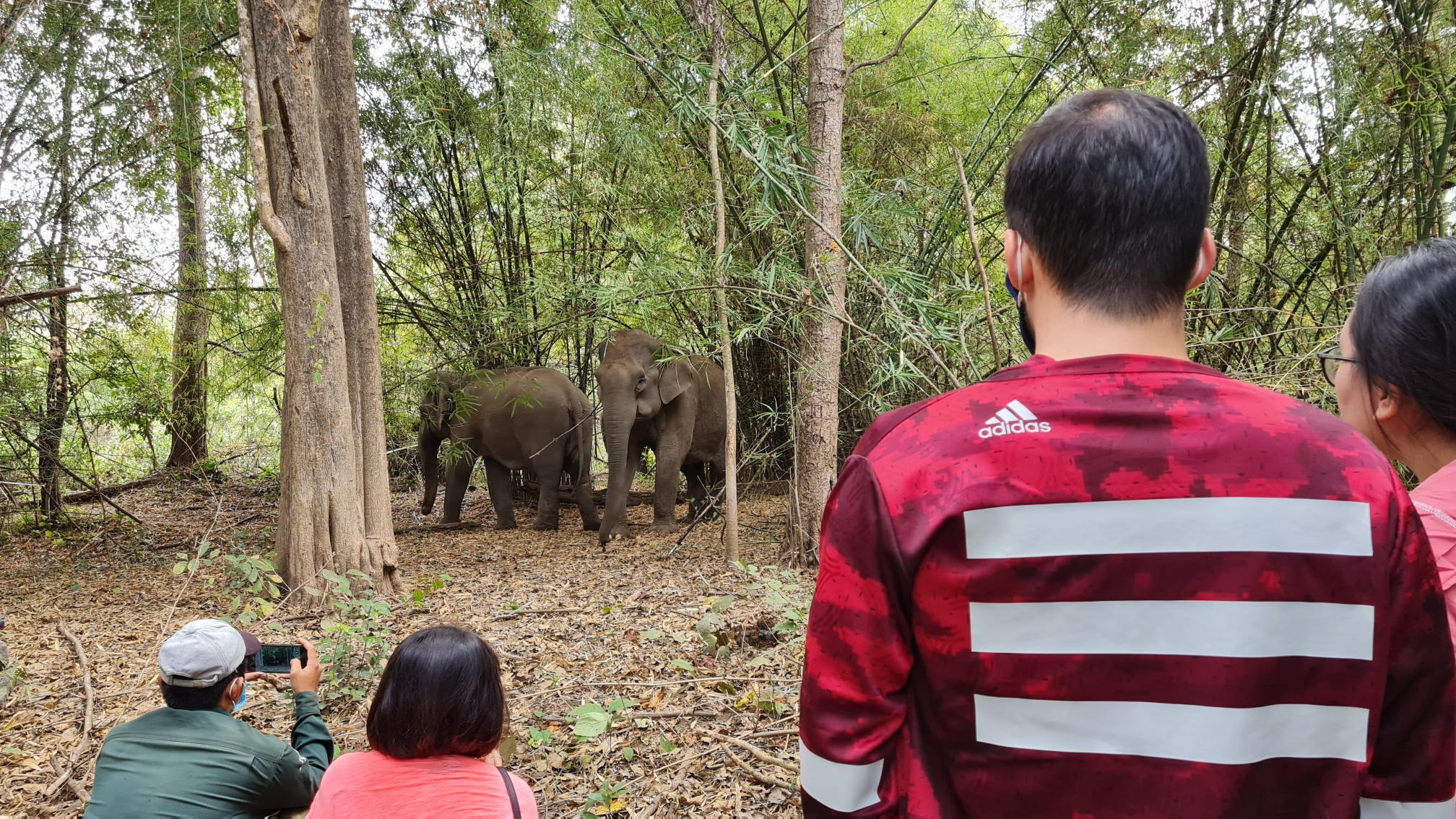
Ya Bich was trained to carry travelers. On its back was an armchair, large enough for two adults and one child. Every day, Ya Bich took 10 trips carrying travelers, about 150-200 kilograms each. One trip lasted up to 60 minutes.
In 2019, Ya Bich was chosen to participate in a trial program on elephant-friendly tourism. Ya Bich could leave the tourism site, return to mother nature, with the vast sky its house and trees its source of life.
Ya Bich could enjoy every moment of those days and this life could have been the dream for all the 71 elephants living on the strip of land.
However, the happy days did not last a long time. In early 2020, Ya Bich was recalled by the elephant management unit, a tourism site, because of the high demand for elephant riding service. The succession of days living in chains began once again.
After many days of carrying tourists and working hard, Ya Bich became very tired. As it missed the old forests, it collapsed. Because she could not receive thorough care, Ya Bich died just days later.
The elephant owners chose to do this kind of business and forced Ya Bich to work. But Ya Bich did not have the right to choose.
Of the 71 elephants left in Vietnam, more than half are being cared for and used in Dak Lak. Elephants in Vietnam and Dak Lak in particular are facing danger.
At tourism sites, elephants have to stand on cement floors with little shade waiting for tourists all day. They are not allowed to eat or drink water, and their feet are chained.
In the wild, elephants live in herds with multiple individuals. In tourism complexes or zoos, they are chained separately, far from each other. This impacts their psychology and behavior.
For domesticated elephants, the female elephants’ reproductive years have finished and they are used to serve tourism. They are isolated from the herd, live separate lives and are controlled by their owners.
Meanwhile, the feeding at tourism sites and zoos cannot satisfy their needs. In the wild, elephants often bathe in mud to protect their skin and eat earth in some specific areas to replenish salt and minerals. They also know how to eat bark or roots of some plants to treat disease.
The number of elephants is decreasing, and the risk of elephants becoming extinct is increasing. The number of herds of elephants has fallen by 90 percent compared with 1980.
In an effort to conserve the elephants, since 2018, AAF (Animal Assistance Foundation) has been cooperating with Yok Don National Park in Krong Nam and Buon Don in Dak Lak to build an elephant-friendly tourism model.
This means no elephant riding and no coercive interactions with elephants. Instead, travelers watch elephants freely walking, seeking food and communicating with each other in natural conditions.
In addition, activities to raise the community’s awareness about the importance of conserving elephants have been organized in the district of Buon Don in Dak Lak.
Elephant owners have been persuaded to participate in the project. They have been guided on how to take care of and improve the welfare of elephants when participating in the elephant-friendly tourism program, building active relations between elephants and mahouts.
In late 2022, the Dak Lak provincial People’s Committee approved a fund for a project on shifting from elephant-riding to elephant-friendly tourism in the province.
The total value of the fund is VND55 billion and the project will be implemented from December 2022 to December 2026 to stop elephant riding activities.
About 12 elephants have benefited from the project, of which seven have been taken care directly by their mahouts. Under the traditional management model, elephants live in fear under severe training, but now the relations between elephants and mahouts has been improved.
According to Tran Thi Kim Loan from AAF, previously, when the regulation on prohibiting the riding of elephants had not been promulgated, elephant owners still wanted to use elephants to serve tourists, because they could earn money to cover basic needs. Meanwhile, tourist sites still used elephants because elephant riding was what travelers expected when coming to the province.
When the elephant-friendly tourism model was put into use, the number of tourists began decreasing, while the management cost and investment rate increased. It will take time and strong media campaigns to change people’s minds and support the new humanitarian model.
The journey of bringing elephants back to the forests has begun showing hope. At the 2023 Buon Ma Thuot Coffee Festival which took place on March 10-14 in Dak Lak, there were only the activities of friendly interactions with elephants, while there was no elephant parade on the street as committed by Dak Lak to AAF.
Thuy Chi